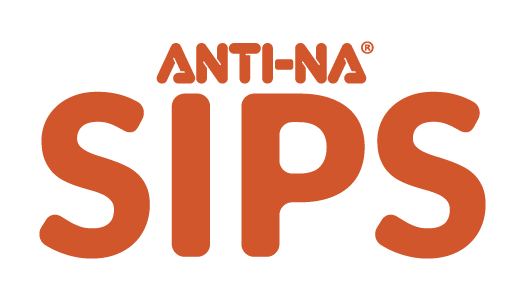Timing is Everything: Strategic Scheduling for Maximum Nausea Relief
Nausea has a way of creeping up at the most inconvenient moments—during a morning meeting, mid-flight, or right after a workout. And you’re not the only one who gets them; studies show that around 12% of people experience nausea at any given time.
One of the most widely recommended natural remedies for nausea is ginger. Ginger is renowned for its digestive-soothing properties and has been used for centuries to calm queasy stomachs. But its effectiveness doesn’t just depend on what form you take—it also depends heavily on when you take it.
In this blog, we dive into why timing is everything when it comes to ginger’s effectiveness—and how to get the most from it.
The Science Behind Why Ginger Helps with Nausea Relief
Ginger isn’t just a cozy kitchen spice—it’s a powerhouse of natural compounds like gingerols and shogaols, which have anti-inflammatory and gastrointestinal-calming properties. These compounds help regulate digestion, reduce stomach contractions, and ease queasiness by interacting with receptors in your digestive tract and brain.
If you take ginger too late, or after your nausea peaks, you might miss out on its most potent benefits. That’s why understanding the timing of when to take ginger is so crucial.
When Should You Take Ginger for Maximum Relief?
Before Travel or Motion Sickness
If you know you get queasy while flying, driving, or sailing, try taking ginger 30 minutes before travel. This gives your body time to absorb the gingerols before your system is exposed to motion triggers.
You can sip a mild ginger tea, take a capsule, or chew a ginger candy or chewable. The Anti-na ginger chews are particularly handy, easy to carry, and effective for mild nausea. Letting the chew sit on your tongue for a few seconds before swallowing can help the compounds activate more quickly.
Morning Sickness Relief
Pregnancy-related nausea can be unpredictable, but it often hits early in the day. Taking ginger right when you wake up—or even before getting out of bed—can help reduce the intensity.
A warm ginger tea, powdered ginger dissolved in warm water with honey, or a gentle ginger drink mix can be soothing.
Some ginger drink powders, such as those made with standardized ginger extract, are designed to be easy on the stomach and hydrating—especially helpful when you’re also low on energy.
Post-Meal Discomfort or Indigestion
When nausea follows a heavy meal, ginger can support digestion and help ease the uncomfortable fullness or bloating.
A small cup of ginger tea or a bit of powdered ginger stirred into warm water with lemon is often enough. Alternatively, a chew can offer a quick fix when you’re not at home. Taking ginger immediately after eating works best here.
During or After Physical Activity
If you’ve ever felt queasy after intense exercise, you’re not alone. This type of nausea is often tied to dehydration or low blood sugar.
Here, a ginger-infused drink can do double duty—easing nausea while helping to rehydrate. Look for options that contain electrolytes or energy-supportive compounds like ribose for an added boost.
One standout option in this category is Anti-Na SIPS, a powdered ginger drink mix made with 2 grams of standardized D-SOLV® ginger (with 3% gingerols) per serving.
Unlike sugary ginger sodas or overly sweet concoctions, SIPS is thoughtfully formulated with Bioenergy Ribose®—a compound known to help restore cellular energy levels, especially after stress, illness, or exertion.
Before Medical Treatments (like Chemotherapy or Surgery)
Ginger has been studied for its ability to reduce nausea associated with chemotherapy, anesthesia, and post-surgical recovery. In these cases, ginger is typically most effective when taken both before and after treatment.
Remember to always follow your healthcare provider’s guidance in such cases.
Comparing Ginger Delivery Formats
Ginger comes in many forms—each with its own advantages.
Choosing the right one can depend on your lifestyle, the severity of your nausea, and how fast you need relief.
Best Ginger for Nausea Relief: Compare Home Remedies
Let's look at some of the more effective forms:
Ginger Tea
-
Best for: Gentle, ongoing nausea relief and digestive support
-
When to take: Before meals, in the morning, or post-meal
Tip: Add lemon or honey for extra soothing power
Powdered Ginger
-
Best for: Custom blends (like ginger-lemon water) and easy dosing
-
When to take: At home, mixed in warm water or smoothie
Tip: Use a measured scoop to avoid overly strong doses
Ginger Chews
-
Best for: On-the-go relief from mild to moderate nausea
-
When to take: Before travel, after meals, or as needed
Tip: Let the chew sit on your tongue for 3–5 seconds before swallowing to kickstart the effect
Ginger Drink Mixes
-
Best for: Hydration plus relief (ideal for fatigue-related or post-exertion nausea)
-
When to take: Morning sickness, post-workout, or travel
Tip: Sip slowly and let it linger on your tongue before swallowing
Ginger Capsules or Tablets
-
Best for: Consistent daily use, higher-dose support
-
When to take: With or without food, especially for chronic or severe nausea
Tip: Choose standardized ginger extracts for reliable potency
Does Swallowing Itself Help with Nausea?
Swallowing engages the vagus nerve—a critical component of the parasympathetic nervous system—which helps regulate digestive processes and maintain gastrointestinal balance.
Swallowing can indeed play a role in alleviating nausea. The deliberate act of swallowing also serves as a gentle distraction, redirecting focus away from discomfort and contributing to an overall sense of relief. This underscores the importance of mindful consumption practices, where the manner and pace of intake can significantly influence the effectiveness of natural remedies like ginger in curbing nausea.
Final Thoughts
Ginger’s ability to ease nausea is backed by centuries of traditional use—and supported today by modern research. Whether it’s motion sickness, morning queasiness, or just an off day, knowing when to take ginger can make all the difference in how well it works.
The form you choose matters too, and it’s easier than ever to find one that fits your lifestyle—be it tea, powdered blends, capsules, chews, or a soothing drink mix. Thoughtfully crafted options like Anti-Na Chews and SIPS are designed to deliver real ginger, real relief, and a bit of comfort when you need it most.
Let it linger. Let it work. And trust that something as simple as timing—paired with the right ginger format—can help you feel better, faster.

Ready to find relief based on your specific nausea triggers? Explore our complete collection of natural nausea solutions or dive deeper into our Natural Nausea Relief Guide for comprehensive strategies.






















